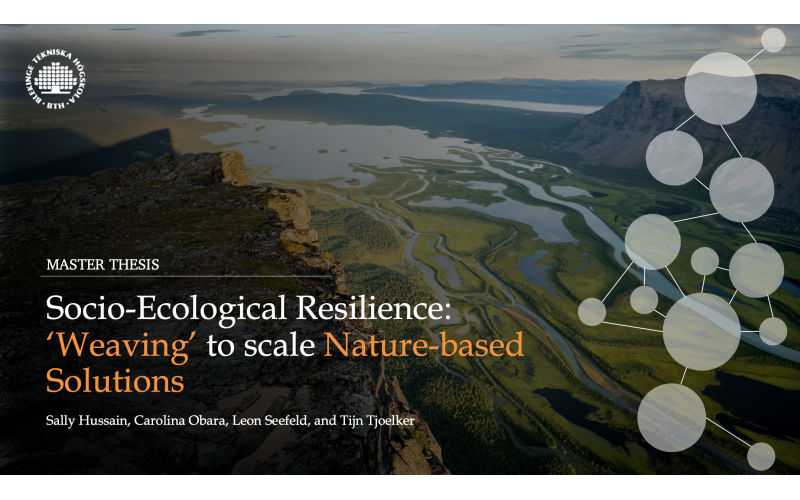Thus far, little research has been conducted on barriers and enablers for scaling NbS to the landscape level. In collaboration with the Bioregional Weaving Labs collective (aiming to restore, protect, and regenerate at least one million hectares of Europe’s land and sea by 2030), a student research team from the Masters in Strategic Leadership towards Sustainability at Blekinge Institute of Technology in Karlskrona, Sweden, has now started to fill this gap in the scientific literature.
In their thesis, the team established a list of seven barriers (+ underlying structural conditions) and nine enablers (+ underlying rationale). The overall purpose of the research was to investigate how 'Weaving' could foster the conditions for scaling NbS to the landscape level. 'Weaving' is an emerging leadership practice that is believed to help cohere fragmented change-making efforts and increase the adaptive capacity of socio-ecological systems. The study describes five core Weaving practices and lands on a working definition for 'Weaving' as “the practice of cultivating meaningful relationships, within, between and across socio-ecological systems for synergistic purposes”. The study concludes with first indications of how 'Weaving' practices have the potential to address several of the established barriers and enablers.

